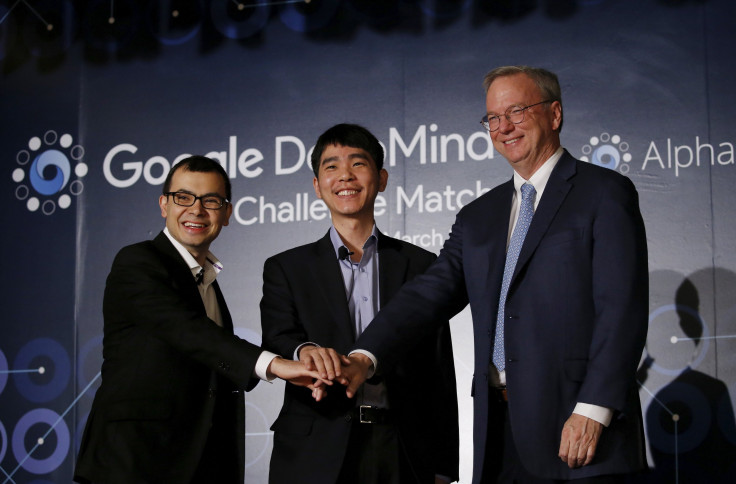Google DeepMind vs. 'Go' Champion Lee Se-Dol: How To Watch AI Showdown Online

It is man vs. machine, a battle to see whether human intelligence can triumph over artificial intelligence (AI). Tuesday night, the world’s foremost player of the ancient Chinese board game Go, Lee Se-dol, will defend the honor of the human race as he matches wits with one of the most advanced computer programs ever created, Google DeepMind’s AlphaGo, which aims to strike a blow for the machines and claim a $1 million prize.
At the Four Seasons Hotel Seoul in South Korea, the 33-year-old competitor considered by most to be the globe’s No. 1 Go player will participate in the first installment of a five-game series against the program developed by the Alphabet Inc. unit Google DeepMind, the hottest AI research company in the world today.
The first game in the series will begin Wednesday at 1 p.m. local time (Tuesday at 11 p.m. EST). It will be live-streamed through YouTube. A game of Go typically lasts between four and five hours.
At a glitzy press conference in Seoul Monday, DeepMind co-founder Demis Hassabis and Alphabet Executive Chairman Eric Schmidt flanked Lee, but the man who has been playing Go competitively for 21 years has not been overwhelmed by all the attention. “I don’t think it will be a very close match,” he told reporters last month. “I believe it will be 5–0 or maybe 4–1. So the critical point for me will be to not lose one match.”
Speaking to BBC News before the opening game, however, Lee sounded a note of caution because of the unique nature of his opponent. “Playing against a machine is very different from an actual human opponent,” Lee said. “Normally, you can sense your opponent’s breathing, their energy. And lots of times you make decisions which are dependent on the physical reactions of the person you’re playing against. With a machine, you can’t do that.”
DeepMind and its AlphaGo program made waves when it beat a highly skilled human opponent, with many calling it a landmark in AI development. However, the player involved, Fan Hui, was the European champion, and while his attaining that distinction is in itself a big achievement, Go is not a major sport in Europe. Hui is ranked No. 800 in the world and is a 2 dan player on the dan scale of professional rankings, which runs from 1 to 9.
In contrast, Lee is ranked No. 1 in the world and is a 9 dan player. He has the second-highest number of international titles ever won in the history of Go, a game that “rewards patience and balance over aggression and greed,” according to the American Go Association.
Alphabet acquired the U.K.-based startup DeepMind Technologies for $580 million in 2014. Since then, DeepMind has refined a system of neural networks designed specifically to play the ancient Chinese board game, which has been notoriously difficult for machines to master.
While the achievement of AlphaGo to date is certainly impressive, the challenge for DeepMind — and all AI companies — is whether they can translate success in carrying out very specific tasks such as playing Go into real world situations. “AI in the real world is still pretty hard,” AI expert Gary Marcus said recently. “The money question, which nobody yet knows the answer to, is whether passing Go will get us there sooner.”
© Copyright IBTimes 2024. All rights reserved.





















